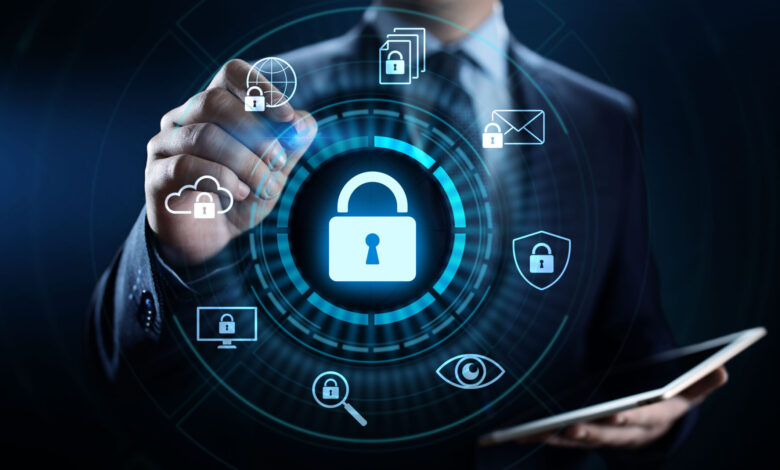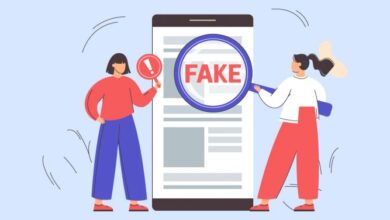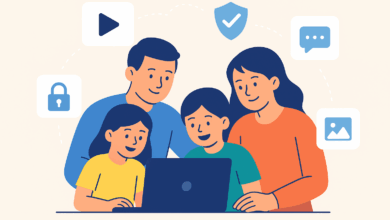Cybersecurity 2025: Staying Safe In The Digital World

Cybersecurity has become one of the most critical concerns to people, companies, and governments all over the world in digital era of 2025. With each passing day, reliance on technology also increases, so does its reliance on the extremely sophisticated craft of cyber attacks. From phishing and identity theft to mega-data breaches and AI-fueled scams, web security is evolving in the blink of an eye. It’s no longer a choice to personalize data and information as professional and personal—online survival makes it mandatory.
The Changing Patterns of Cyberattacks
Viruses and simple hacking were security problems a decade ago. But today, cyberattacks are more targeted and intense. With the advent of artificial intelligence, cyber attackers now employ machine learning algorithms to discover vulnerabilities and strike more accurately. Deepfakes, for example, have the ability to clone voices and video to impersonate someone, while ransomware continues to incapacitate organizations by holding their systems hostage for ransom.
But today, in 2025, the Internet of Things (IoT) also brought new security risks. Regular things—intelligent cars and intelligent refrigerators—are transmitting information and placing it on the internet and leaving new windows of opportunity for hackers to enter. So, cybersecurity is no longer just computers and phones, it’s all about almost every electronic device we come into contact with.

Why Cybersecurity Is More Important Than Ever
With all of our financial and personal data on the internet, everyone has a role to play in cybersecurity. For customers, bad security practices can result in identity theft, loss of privacy, or financial phishing. For businesses, a single breach can result in costly financial damage, reputation damage, and trust loss.
Apart from that, now that web and electronic transactions are more and more the future, work life and personal life are no longer distinct. It is being in the practice of good cybersecurity and not just the IT people’s responsibility.
How to be Safe in the Cyber World
1. Keep Your Passwords Safe and Use Two-Factor Authentication (2FA)
Safe passwords are still your ultimate protection. Employ a combination of hard letters, digits, and symbols, and do not recycle a password to any other web page. Two-factor authentication provides safety, as entry is still denied even when passwords have been hacked.
2. Pay Attention to Phishing and Scams
Phishing messages and fake sites are more sophisticated than ever. Always verify the source before clicking any links or opening any attachments. Be cautious of emails that attempt to establish urgency, i.e., “Your account is locked” or “You have won a prize!”—these are common tactics used by cyber criminals to trick users into revealing personal details.
3. Keep Your Software and Devices Updated
Outdated programs can contain the kind of vulnerabilities that the hackers will exploit. Staying up to date with your operating system, applications, and antivirus with the latest protection features and security patches will be in your favor.
4. Protect Your Wi-Fi and Cloud Data
Always use strong passwords when accessing Wi-Fi networks and never enter sensitive information via public Wi-Fi. An additional measure to take is to use a Virtual Private Network (VPN). Keep files in the cloud while activating encryption to protect files from use by unauthorized users.
5. Educate Yourself and Your Family
Cybersecurity starts at home. Teach kids and family members about the safe browsing practice such as not sharing personal information or downloading strange apps. Awareness is one of the best defensive tools against new types of cybersecurity threats.
The Role of AI in Cyber Defense
While AI has made cybercrime possible, it is also as important in helping with cybersecurity. Sophisticated AI systems can detect out-of-pattern behaviors, predict attacks before they occur, and respond to threats faster than is possible with human capabilities. Companies are becoming more reliant on AI in automating the security process and simplifying threat detection, a new age of proactive protection.

Concluding Thoughts
It is no longer a tech issue as we step into 2025, cyber security is now a matter of personal choice. Cyber security is simply about information, self-knowledge, and learning something new every day. By living good digital behavior, being aware it is there, and responsibly using tech, we can all work together to build a secure digital environment. Cybersecurity is the backbone of on-line trust—take care of it, and you will take care of your future.

